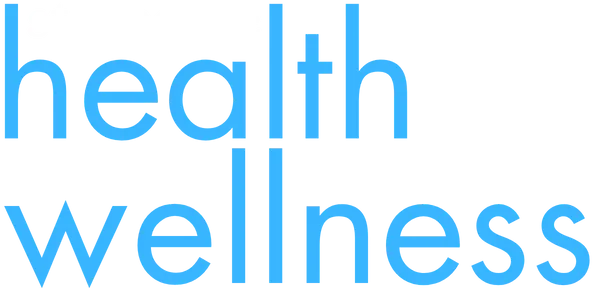

EXERCISE & FITNESS ARTICLES

The Importance of a DEXA Scan for Overall Health and Wellness
A Dual-Energy X-ray Absorptiometry (DEXA) scan is a powerful diagnostic tool widely used to measure bone mineral density (BMD) and assess body composition. While it is often associated with older adults and osteoporosis screening, this simple, non-invasive test offers valuable insights into health and wellness for individuals of all ages. In fact, there are several reasons why someone under age sixty-five might consider getting a DEXA scan as part of their preventative health strategy.
What is a DEXA Scan?
A DEXA scan uses low-dose X-rays to assess bone density, providing a detailed picture of bone health. Additionally, many modern DEXA scans can measure body composition, including fat and lean muscle mass, offering a comprehensive understanding of overall health. The test is painless, quick, and involves minimal radiation exposure.
Why Consider a DEXA Scan Before Age Sixty-Five?
While the U.S. Preventive Services Task Force recommends routine osteoporosis screening for women aged sixty-five and older, there are numerous situations where a DEXA scan can be beneficial earlier in life:
Early Detection of Bone Loss
Bone density naturally declines with age, but some individuals experience accelerated loss due to lifestyle factors, hormonal changes, or medical conditions. A DEXA scan can detect early bone loss, allowing for interventions to prevent fractures and osteoporosis later in life.Example: A premenopausal woman with a family history of osteoporosis or frequent fractures might benefit from a DEXA scan to establish a baseline for her bone health.
Post-Menopausal Women Under Sixty-Five
Women who enter menopause before fifty or experience early menopause due to surgery or medical treatment are at a higher risk of bone loss. A DEXA scan can help assess the impact of reduced estrogen levels on bone density.Monitoring Athletic Health
Athletes, especially those in high-impact sports or weight-sensitive disciplines like gymnastics or long-distance running, may be at risk of stress fractures due to low bone density or imbalanced body composition. A DEXA scan can identify potential issues and guide training and nutrition strategies.Chronic Health Conditions
Certain medical conditions, such as rheumatoid arthritis, diabetes, or thyroid disorders, can negatively impact bone health. Additionally, long-term use of medications like corticosteroids can increase the risk of osteoporosis. A DEXA scan provides critical data for managing these risks.Example: A forty-five-year-old man with rheumatoid arthritis on long-term steroid therapy might use a DEXA scan to monitor his bone health.
Assessment of Body Composition
Beyond bone density, DEXA scans offer precise measurements of fat and lean muscle mass, making them valuable for individuals focused on fitness, weight management, or athletic performance. Understanding body composition helps tailor exercise and dietary plans to meet specific health goals.Example: A thirty-year-old fitness enthusiast looking to optimize training might use a DEXA scan to track muscle gain and fat loss.
Evaluating Risk of Fractures After an Injury
If you've had a bone fracture from minimal trauma, such as a fall from standing height, a DEXA scan can help determine whether underlying bone weakness contributed to the injury.Family History of Osteoporosis
If osteoporosis or fractures are prevalent in your family history, a DEXA scan can serve as an early warning system to help prevent similar issues.
How a DEXA Scan Can Improve Health Outcomes
Early detection of bone loss or imbalanced body composition can lead to targeted interventions that improve health outcomes. For example:
Diet and Supplements: Adequate calcium and vitamin D intake can be prioritized to strengthen bones.
Exercise Plans: Weight-bearing and resistance exercises can be incorporated to enhance bone density and muscle mass.
Medical Treatments: Physicians may recommend medications to slow bone loss or address underlying conditions contributing to poor bone health.
By providing detailed data, a DEXA scan empowers individuals and healthcare providers to make informed decisions about preventative care and lifestyle adjustments.
Who Should Consider a DEXA Scan?
Although DEXA scans are most commonly associated with postmenopausal women, the test is beneficial for:
Men and women with chronic health conditions or prolonged use of bone-impacting medications.
Athletes and fitness enthusiasts seeking detailed body composition data.
Individuals with a history of fractures or a strong family history of osteoporosis.
Those experiencing significant weight changes or changes in muscle mass.
Proactive Health with DEXA Scans
A DEXA scan is more than a diagnostic tool for osteoporosis; it’s a window into your overall health and wellness. Whether you’re managing a chronic condition, optimizing athletic performance, or simply taking charge of your long-term health, this test offers invaluable insights that can help you live a healthier, more active life.
By incorporating DEXA scans into preventative care, individuals can take proactive steps to maintain bone density, balance body composition, and prevent future health challenges—all well before the age of sixty-five.
To schedule an appointment with DexaFit, call (435) 922-0919 or visit their website at https://www.stgeorge.dexafit.com/. DexaFit is located at 1841 E. Riverside Drive, Suite 202 in St. George, Utah.
